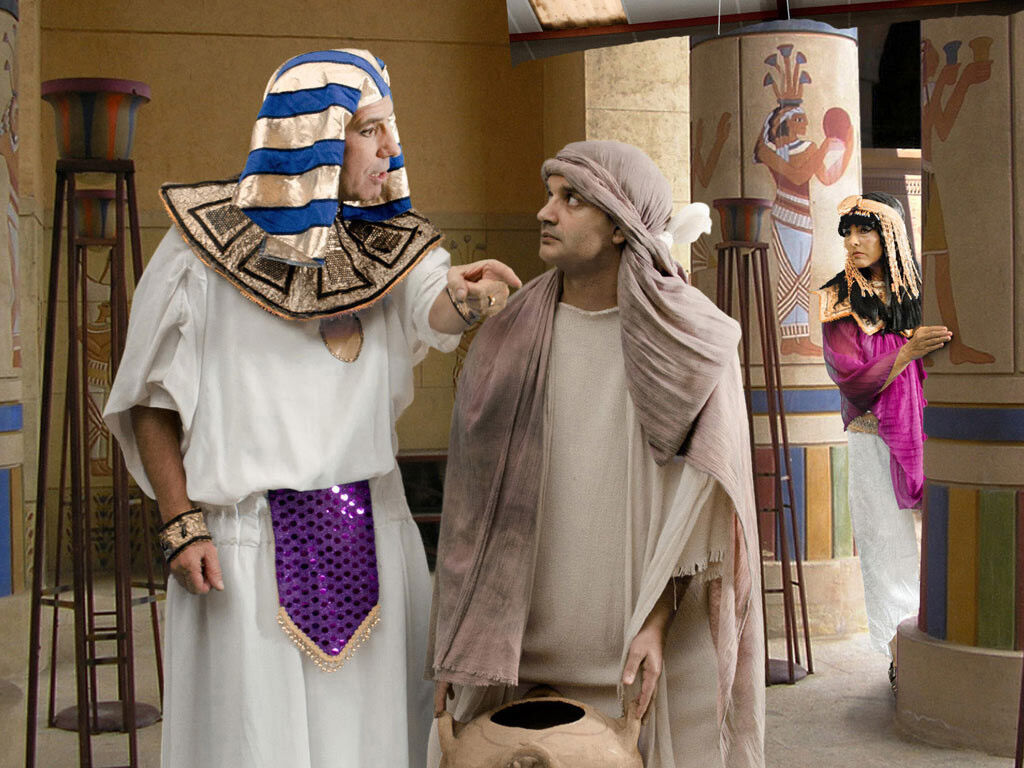The Bible tells us that the stories of the Old Testament were recorded as examples to us (1 Corinthians 10:6 NIV84).
The Bible is a record of real historical people, real events, and literal places. For instance, the record of JosephŌĆÖs life is a reliable record of real events that happenedŌĆöhis birth, abduction, imprisonment, and eventual rise to power in Egypt.
But the Bible is more than a history book. The specific lives and events recorded in Scripture were included by the inspiration of God for the purpose of advancing the plan of salvation. We read about the descendants of Abraham, Isaac, and JacobŌĆösuch as JosephŌĆöbecause it was through them and their families and descendants that the promised Messiah would come.
But even more than this, many of the life experiences recorded are examples, object lessons, or foreshadows of greater realities in the plan of salvation.
For instance, there were seven miracle births recorded in the Bible besides JesusŌĆÖ virgin birth. These other miracle births were not virgin births; they were women with infertility whom God healedŌĆöthus, it was a miracle of healing the malady of infertility and then the women became pregnant in the normal way. These seven special births all represent Jesus in some way:
- SarahŌĆöIsaac: represents the promised Child who would be sacrificed.
- RebekahŌĆöJacob: in union with God, Jacob wrestled with his own fears and selfishness and overcame, eventually becoming the father of the nation built upon his twelve sons. This foreshadows Jesus, who wrestled with temptation and overcame to be the cornerstone of the church, which was built upon the work of twelve apostles.
- MonoahŌĆÖs wifeŌĆöSamson: Samson was blessed with strength to deliver Israel from bondage and rule over them. Jesus has the strength to deliver us from sin and rule the universe.
- HannahŌĆöSamuel: represents our heavenly High Priest, Jesus.
- Shunammite womanŌĆöchild who died and was resurrected: represents Jesus, who died and rose again.
- ElizabethŌĆöJohn the Baptist: John was described as the greatest of prophets and accurately represents Jesus, who was the greatest of all prophets.
- RachelŌĆöJoseph: the events in JosephŌĆÖs life greatly foreshadow the life of Jesus.
┬Ā
Joseph: A Foreshadow of the Savior
There is more written about Joseph in the book of Genesis than any other Bible patriarch. This is because JosephŌĆÖs life, in a very real way, foreshadows Jesus and provides powerful lessons about the plan of salvation.
Below are some of the ways JosephŌĆÖs life foreshadowed the life of Jesus:
- Jacob gave Joseph a coat of many colors. This was JacobŌĆÖs way of setting Joseph apart from his brothers as the one who would occupy the position of firstborn (which is not about birth order but about position of authority in the family). The firstborn received a double inheritance, something that Joseph received, as the Bible explicitly confirms: ŌĆ£The rights of the firstborn belonged to JosephŌĆØ (1 Chronicles 5:2 NIV84).
- Jesus ŌĆ£is the image of the invisible God, the firstborn over all creation. For by him all things were created: things in heaven and on earth, visible and invisible, whether thrones or powers or rulers or authorities; all things were created by him and for him. He is before all things, and in him all things hold togetherŌĆØ (Colossians 1:15ŌĆō17 NIV84).
- JosephŌĆÖs brothers were jealous, betrayed him, and lied about him.
- Lucifer was jealous in heaven and betrayed Jesus and, lying about God, led a third of the angels into rebellion; he then lied to Adam and Eve, leading humanity into sin. When Jesus came to Earth, He was despised and rejected by men. His own people betrayed Him, lied about Him, and handed Him over to Roman authorities to have Him killed.
- Joseph was sold and became a slave.
- Jesus left heaven and humbled Himself all the way down to that of a slave, just as Scripture describes: ŌĆ£You should have the same attitude toward one another that Christ Jesus had, who though he existed in the form of God did not regard equality with God as something to be grasped, but emptied himself by taking on the form of a slave, by looking like other men, and by sharing in human nature. He humbled himself, by becoming obedient to the point of deathŌĆöeven death on a cross! As a result God exalted him and gave him the name that is above every name, so that at the name of Jesus every knee will bowŌĆöin heaven and on earth and under the earthŌĆö and every tongue confess that Jesus Christ is Lord to the glory of God the FatherŌĆØ (Philippians 2:5ŌĆō11 NET)
- Joseph was faithful in all his duties as a slave.
- Jesus was faithful in all His duties as our human Savior (Revelation 1:5).
- Joseph was tempted by PotipharŌĆÖs wife but rejected the temptations.
- Jesus was tempted by Satan in the wilderness but rejected the temptations (Matthew 4:1ŌĆō11; Hebrews 4:15).
- Joseph was falsely accused by PotipharŌĆÖs wife.
- Jesus was falsely accused by the Jewish leaders.
- Joseph was wrongly imprisoned in a dungeon.
- Jesus was wrongly imprisoned in the grave.
- Joseph was raised to the right hand of the sovereign.
- Jesus arose from the grave to the right hand of God (Ephesians 1:20).
- Joseph was Hebrew but also became Egyptian and took an Egyptian name.
- Jesus is divine but He became human.
- Joseph married an Egyptian woman.
- ChristŌĆÖs bride is from this world of sin.
- Joseph prepared a place for his family.
- Jesus prepares a place for us (John 14).
- Seven years of plenty to prepare for the seven years of famine.
- Seven is a number that represents spiritual completion. We are in a spiritual war, and Jesus is the bread that came down from heaven that provides the spiritual sustenance for all who trust Him (John 6:33, 41). Jesus has a storehouse of spiritual food sufficient for all our needs. Despite living in a world of sin, a world of spiritual famine, Jesus is the Bread of Life for all who will trust Him.
- Joseph required those who wanted the grain of Egypt to purchase it and, ultimately, they sold everything they had to Egypt.
- In order for us to partake the bread of heaven, we must surrender all other means whereby we try to obtain eternal life. We are instructed to buy from Jesus the gold tried in the fire (Revelation 3:18). We buy from Jesus through the barter method. We exchange what we have for what He has. We exchange a sinful heart for a righteous heart, guilt and shame for purity and peace, condemnation for commendation, eternal death for eternal life.
- Joseph received the land of Goshen, a rich and bountiful land, from the sovereign for his family.
- Jesus will receive the earth made new from His Father for His human family.
The Bible is the record of real historical people, who lived real historical lives. But it is even more: It is a divine revelation of GodŌĆÖs love, character, methods, principles, and His plan to save you and me from sin.
As you study Scripture, not only learn the historic truths, but also seek the deep eternal truths.
┬Ā
┬Ā
┬Ā









 using your credit or debit card (no PayPal account needed, unless you want to set up a monthly, recurring payment).
using your credit or debit card (no PayPal account needed, unless you want to set up a monthly, recurring payment). instead?
instead?